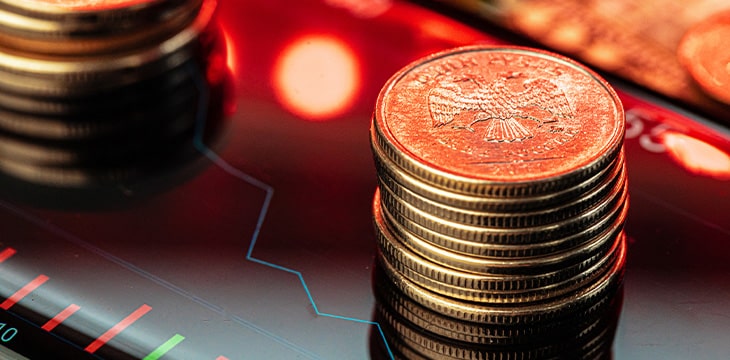|
Getting your Trinity Audio player ready...
|
Russia is considering allowing international trade transactions to be settled with digital assets. Prime Minister Mikhail Mishustin has declared that exploring digital asset payments is one avenue that is imperative to increasing the resilience of the Russian economy.
Mishustin made the remarks while speaking at a strategic session on the development of the domestic financial system, which had other ranking members of the Russian government in attendance.
The premier stated that adopting digital assets is necessary as a safe alternative for uninterrupted cross-border payments. He added that innovations in digital assets adoption is essential to ensure the technological independence of the infrastructure and cybersecurity of Russia’s financial institutions.
“We need to intensively develop innovative areas, including the adoption of digital assets. This is a safe alternative for all parties that can guarantee uninterrupted payment for the supply of goods from abroad and for export,” Mishustin said.
He also highlighted that his stance is in line with the President’s emphasis on the need to strengthen Russia’s financial self-sufficiency and independence, especially under the country’s current sanctions and restrictions.
Russia has been eyeing digital asset adoption and regulation
Mishustin is only the latest Russian government official to recommend facilitating international trade with digital assets. In June, the head of the Central Bank of Russia (CBR) Elvira Nabiullina opined that digital assets could be used safely in international settlements if they do not “penetrate” the domestic market.
Previously, Reuters reported that Russia’s financial policy department under the Finance Ministry was already actively discussing the idea of using digital assets in foreign trade. This is according to a statement by the head of the department, Ivan Chebeskov, who added that the major stumbling block was how to regulate digital assets and blockchain technology.
To remedy this, several bills are making their way through the Russian Parliament that will provide regulatory clarity for the block reward mining and digital asset industry in the Russian Federation. The country is also working on a central bank digital currency (CBDC) which it plans to have in pilot testing by early 2023.
Meanwhile, Russia is not the only sanction-laden country that has given digital asset settlements consideration. Earlier this month, Iran, one of the most sanctioned countries globally, completed its first import transaction with digital assets. Iranian Industry, Mine, and Trade Deputy Minister Alireza Peyman-Pak said the transaction is only the first of many the country plans to carry out.
To learn more about central bank digital currencies and some of the design decisions that need to be considered when creating and launching it, read nChain’s CBDC playbook.
Watch: The BSV Global Blockchain Convention panel, The Future of Financial Services on Blockchain: More Efficiency & Inclusion

 02-25-2026
02-25-2026 




